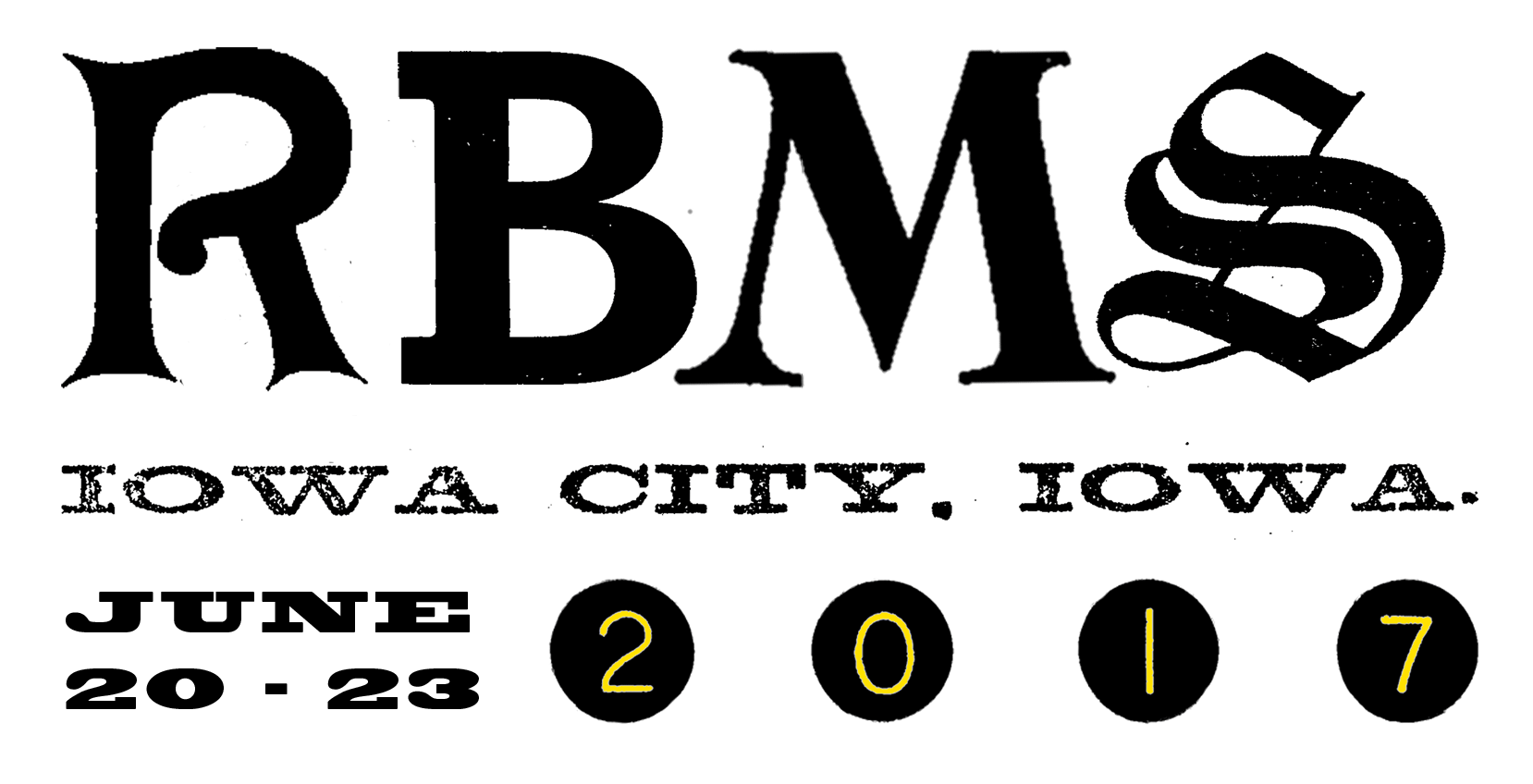Conference Seminars (Part 3)
In April, Ellen Cordes focused on the development of a seminar post-acceptance. What is that process like for a seminar organizer?
Our seminar, “Getting What You Want: Financial Advocacy for Financial Resources,” started as a Twitter thread in April 2016. I put out a call after seeing the 2016 Seminar Committee meeting minutes from ALA Midwinter, which included a brainstorm of seminar ideas. I was intrigued in seeing “money in special collections” as a topic, especially the storytelling and advocacy components of that work.
This tweet turned into a direct message thread and then an email thread. Our preliminary proposal, submitted in June, was developed via email. A few weeks later, Sarah Horowitz contacted me on behalf of the Seminars Committee to ask if any of our potential presenters would be available to talk with the committee at ALA Annual. Unfortunately, none of us were planning to attend, but the Seminars Committee provided us with comments via email. Sarah reminded us that we had the option to submit a revised proposal that addressed these comments (such as: How might we ensure our session wouldn’t repeat a popular session from 2015? How might we further explore “articulating our value”? And a reminder that we focus on the educational component, or what attendees would take away from the session.) A revision was completely optional, but the Committee provided helpful questions that helped us think about the scope of our seminar.
A revised proposal was due in July 2016. Our group morphed several times (as a few interested folks changed jobs or realized they were unable to attend RBMS) but Mattie Taormina and I submitted a revised proposal in mid-July that incorporated the Committee’s feedback. As a result, Mattie and I were able to clarify our vision for the seminar, especially what we intended the educational component to be: “best practices” for articulating our value and thinking strategically about the work of fundraising. A month later, we were notified that our seminar had been accepted for RBMS 2017!
Sarah then introduced us to our wonderful liaison from the Seminars Committee, Erin Rhodes. In December, she checked in and asked us a few questions to help us finalize our list of speakers, title, and abstract by January 2017. She and Sarah then offered time during the next Committee conference call for seminar organizers to ask questions and address their concerns. The call in January was incredibly helpful – I was able to ask about the format of our session, how to provide balanced perspectives through the seminar speakers, and preferred room setup. Erin followed up via email and offered to ask the Oberlin 17 group about an additional panelist who might represent the small liberal arts college point of view. I made a few phone calls and sent a few emails to potential panelists based on recommendations of the Committee and panelists. In the month of January, we confirmed (via email) our final speaker list: Rebekah Irwin, Mattie Taormina, Alice Schreyer, me, and Erin as our moderator!
With our list of speakers and abstract finalized, our seminar group has had two conference calls to parse out our distinct contributions, perspectives, and goals. We explored major concepts and the session format: brief perspectives from each panelist, breakout sessions led by panelists with specific questions, reporting/commentary/Q&A flow. We developed a list of topical considerations for each panelist based on Committee feedback and our own discussions, as well as discussion questions and a few canned questions for Q&A.
Overall, I encourage anyone with a fledgling seminar idea to reach out to the Seminars Committee – throw your ideas into the ring and you’ll get an honest, meaningful critique. The Committee provided encouragement and ideas for further development throughout the process and I find myself with a polished seminar today. You do not need a fully developed concept to have a good preliminary proposal. Go for it!
–Audra Yun
Head of Special Collections & Archives
and University Archivist
University of California at Irvine

